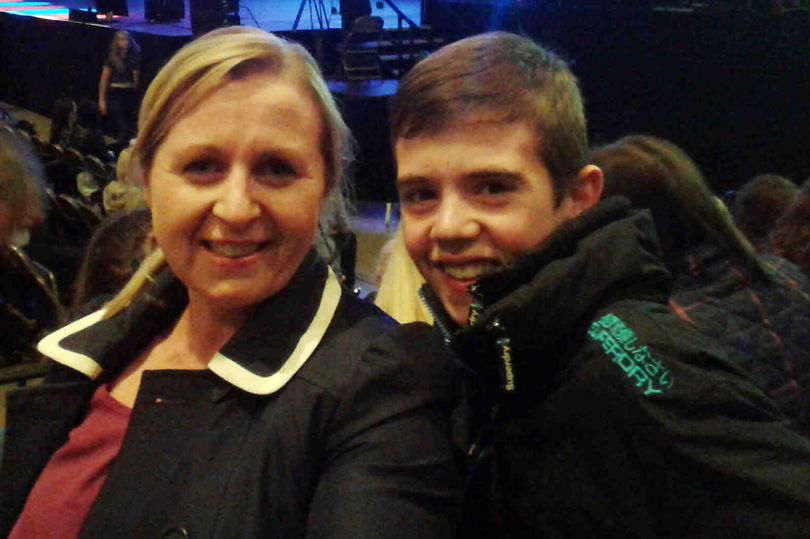Researchers in Oxford have launched the first UK study in the general population to test for early markers of type 1 diabetes before children develop symptoms or need insulin.

The study, which is being offered when children have their pre-school vaccination, involves a finger prick and a few drops of blood.
Early diagnosis can help prevent the life-threatening illness that can occur if type 1 diabetes (T1D) is diagnosed late. Early treatment can avoid the need for intensive care and indeed any hospital admission, and reduce the stress that accompanies an unexpected diagnosis.
T1D is the commonest autoimmune disease of childhood, affecting one in 350 children. It is caused by the destruction of the insulin-producing cells in the pancreas, resulting in elevated blood sugar levels. This long-term condition results in life-long insulin dependence and increased risk of major health problems, such as heart disease, blindness and kidney failure.
In around a quarter of children with T1D (and in more than half diagnosed during the COVID-19 pandemic), the diagnosis is not made until they become severely unwell, in ‘diabetic ketoacidosis’ (DKA), which results in hospitalisation, and can cause shock, brain swelling and, if untreated, death.

One or two children die every year as a result of a late T1D diagnosis. Beth Baldwin’s son, Peter, was aged 13 when he died of DKA due to a late diagnosis.
Beth, from Cardiff, said: “I am very happy this study has been approved. If testing was standard eight years ago, I wouldn’t be participating now and Peter would still be here. Testing pre-school children will revolutionise type 1 diagnosis and save many lives. Awareness saves lives.
“I am hopeful of a positive outcome that leads to a UK-wide roll-out in the mission to prevent DKA diagnosis of T1 and any fatalities from this condition. This is part of Peter’s legacy.”
Dr Rachel Besser, a paediatric diabetes consultant at Oxford University Hospitals (OUH) and Chief Investigator on the study at the University of Oxford, said: “We now have an accurate test, which just requires a simple finger prick blood sample, that can identify children who will develop T1D before they get any symptoms. So far, the test is proving popular.”
The test measures anti-islet cell autoantibodies (Islet Ab), a marker of the autoimmune process. The presence of two or more Islet Abs gives a 100% lifetime risk of needing insulin, and an 80-90 percent chance of needing insulin in childhood.
“If we can identify children very early in the course of the disease, it allows them and their families time to adjust to the diagnosis and learn about diabetes while the child is still well. In most cases, there is no one else in the family with T1D, so it’s a big adjustment,” Dr Besser explained.
“Early diagnosis also has the benefit of allowing insulin treatment to begin earlier, preventing the child developing DKA before the diagnosis is made and avoiding them ever having to go through the worrying experience of being admitted to hospital. New drugs are now coming on the market which offer hope to delay the onset of diabetes.”

Ten-year-old Jake Harris from Banbury (pictured right) has T1D. His father, Mark, recalls when he had to rush Jake into hospital before they were aware of his condition: “I carried him into A&E, and he went downhill really quickly. He ended up in intensive care in the middle of the night. The whole thing was horrific.
“When they told me it was type 1, I had no idea as there wasn’t a family history. We spent three more days in hospital learning what we needed to do. The reality is still sinking in.”
Mark adds: “A study like this is so important. The child’s health is paramount, but the impact on the family is huge. Early diagnosis allows the parents to mentally prepare and digest what this will mean for them, as they will need to manage the condition for the child into their mid-teens or beyond. It also allows the extended family to be involved from the start to allow them to support both the child and the parents.”
The study, which is supported by the NIHR Oxford Biomedical Research Centre and the Wellcome Centre for Human Genetics at the University of Oxford’s Nuffield Department of Medicine, will initially involve 60 children being screened in two GP practices in the Thames Valley when they attend their pre-school booster vaccination, typically at the age of three and a half to four years of age.
This is a feasibility study to assess whether families are happy to take part and the practicalities of collecting finger-prick samples for Islet Ab testing at the time of the pre-school booster, before further rollout.
Dr Besser’s research team have been awarded £151,000 from the National Institute for Health and Care Research (NIHR) and £288,000 from the NovoNordisk Research Foundation UK to investigate the best approach to introducing T1D screening among children into the NHS. This will include interviewing parents in the feasibility study about the benefits of screening and possible concerns.
The NIHR funding will also allow the team to look into the costs and potential savings of screening for the NHS.
“This test could be life-changing, preventing avoidable illness and family stress. But first, this study will help to establish the willingness of families to take part, which will guide us in the development of a national diabetes testing programme to protect all children,” Dr Besser said.